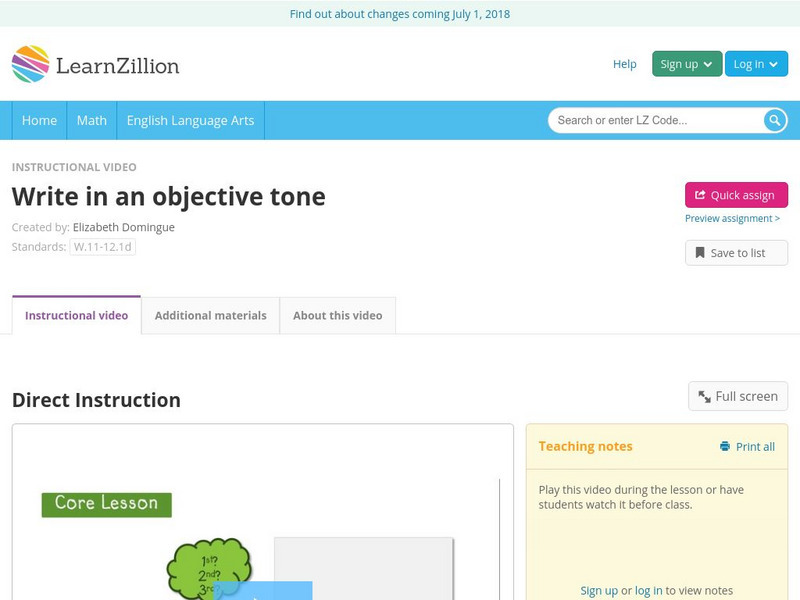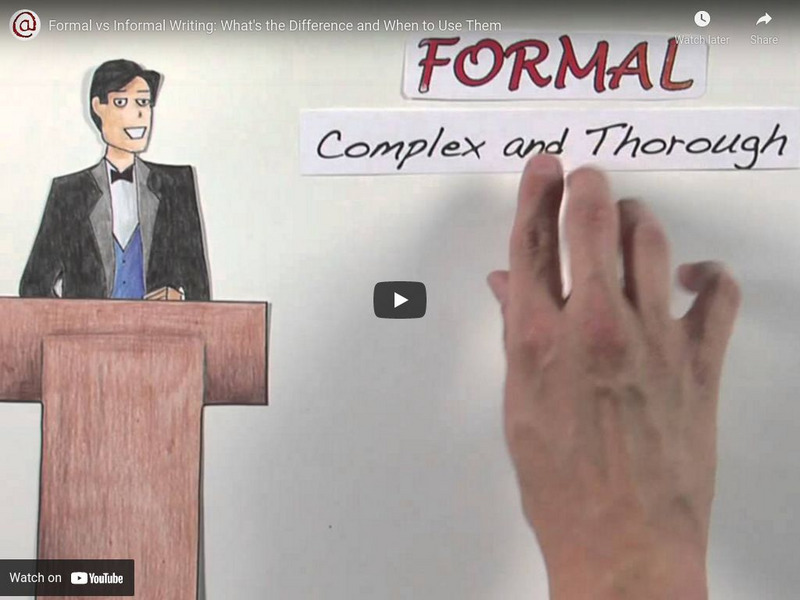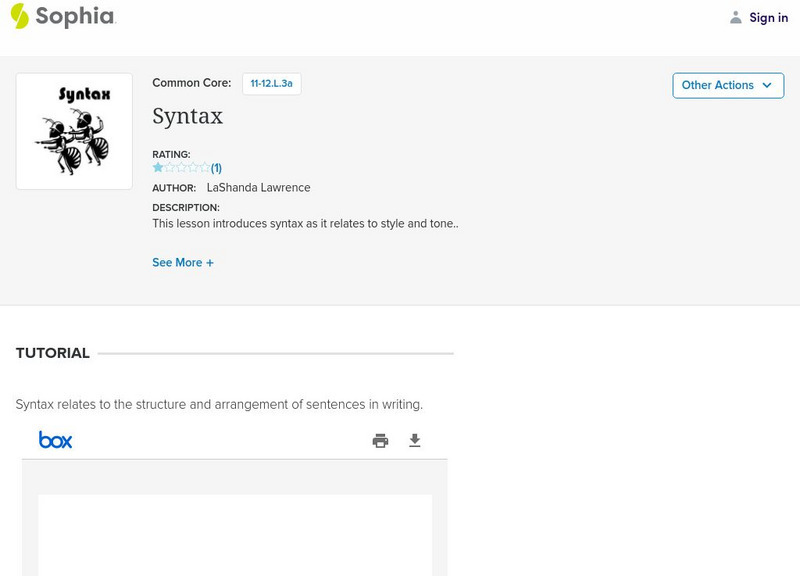Hi, what do you want to do?
PBS
Can We Hear Shapes?
What do shapes sound like? Scholars learn about the frequencies of pure tones created by vibrations of shapes. The video first considers the case of string, then moves on to two dimensions. It touches upon Fourier series and a question...
Townsend Press
Purpose and Tone
A powerful image or well-placed comment always has intention behind it. Guide young readers through author's purpose and tone with a language arts video that explains why word choice is key in writing clearly and coherently.
Sophia Learning
Sophia: Narrative Key Elements
This video lesson focuses on the key elements of writing a narrative: point of view, tone, reflective statement, pacing, emphasis, and cohesion. W.9-10.3,3a, 3b, 3c, 3e Narratives, W.11-12.3,3a, 3b, 3c, 3e Narratives
Sophia Learning
Sophia: Identifying Tone
This lesson focuses on how to identify the tone of a passage. It defines tone, explains how to identify positive, negative, and neutral tones, and demonstrates how to identify tone with both a literary and a non-fiction example. [5:14]
Imagine Learning Classroom
Learn Zillion: Analyze How a Poet's Word Choices Contribute to the Poem's Meaning
In this video, you will learn how to determine the difference between what is directly stated and what is meant by considering the effect of word choice on tone. [7:47]
Imagine Learning Classroom
Learn Zillion: Write in an Objective Tone
In this lesson, you will learn to write in an objective tone by editing point of view. [5:36]
Curated Video
Mistersato411 (You Tube): How Does Word Choice Affect Tone and Meaning?
In this video, the instructor Mr. Sato helps students learn the difference between connotation and denotation. Students will also explain how connotations help develop the author's tone and meaning. RL.11-12.4 Words/Context/Story
Other
Ezine: Formal vs Informal Writing: What's the Difference and When to Use Them
Before you start writing any article, one of the first things you need to ask yourself is "Who's my audience?" Answering this question will help you decide if you should use a formal writing style or an informal writing style. [2:52]
ABCkidTV
You Tube: How to Write for Your Audience Writing Video for Kids
This video [4:04] will help you learn how to write for your audience in narrative, informational, and persuasive writing. You'll learn about writing style, formal and informal word choice, and tone.
Sophia Learning
Sophia: Tints, Tones & Shades: Lesson 3
In this lesson, you will learn to define and categorize the tints, tones and shades of a color. It is 3 of 3 in the series titled "Tints, Tones & Shades."
Sophia Learning
Sophia: Tone: Lesson 2
A screencast [2 mins, 19 secs] defining, explaining, and providing examples of tone.

















